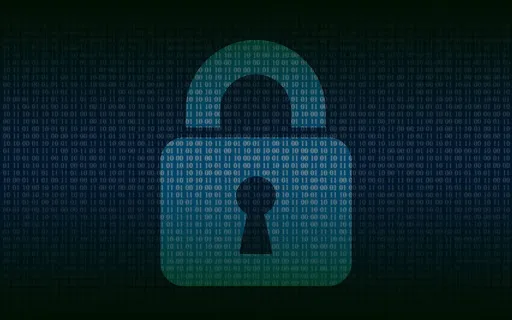5 minute read
In today’s digital landscape, where technology permeates every facet of business operations, understanding cybersecurity is not just an option but a necessity. Cyber threats are constantly evolving, becoming more sophisticated and pervasive, targeting companies of all sizes across various industries.
A single breach can lead to devastating financial losses, irreparable damage to reputation, and even legal repercussions. For this reason, businesses must be proactive in protecting their assets and sensitive information against cyber-attacks. Let’s take a closer look at what every business needs to know about cybersecurity right below.
Invest in Cybersecurity Services
The saying “an ounce of prevention is worth a pound of cure” holds true when it comes to cybersecurity. Investing in affordable cybersecurity services can save businesses from potentially catastrophic losses in the long run. These services include vulnerability assessments, penetration testing, and managed security solutions.
By conducting regular vulnerability assessments and penetration testing, businesses can identify potential weaknesses in their systems and take proactive measures to address them before they are exploited by cybercriminals.
Implement Strong Password Policies
Employees should be encouraged to create complex passwords that include a mix of uppercase and lowercase letters, numbers, and special characters. Implement mandatory password changes every few months to significantly reduce the risk associated with compromised credentials.
To enhance security even further, businesses should consider employing two-factor authentication (2FA) for critical systems, which requires users to provide a second form of verification in addition to their password. When you promote a culture of password security and educate employees about the importance of safeguarding their login information, your business can fortify its defenses against cyber threats.
Regularly Update Software
Most of the time, software updates are released to fix security vulnerabilities, so it’s crucial to keep all systems and applications up-to-date. Hackers often exploit outdated software to gain access to sensitive information or infiltrate systems.
Businesses should also ensure that they have a robust backup system in place for critical data. In the event of a cyber-attack or system failure, having recent backups can help minimize downtime and prevent data loss. Cloud-based solutions can offer an additional layer of protection, as they provide off-site storage for backups.
Educate Employees on Cybersecurity
Despite the advancements in technology, human error remains one of the leading causes of cyber breaches. Businesses should invest in regular cybersecurity training for all employees to educate them on best practices and potential threats. This includes recognizing phishing emails, avoiding suspicious websites, and being cautious when using public Wi-Fi networks.
Every company should have clear protocols in place for reporting any potential security incidents or concerns. It’s something as simple as an employee clicking on a suspicious link that can lead to a data breach, so instilling a culture of security awareness can go a long way in protecting your business.
Perform Regular Security Audits
Conducting regular security audits is vital to maintaining the integrity and security of your business’s digital environment. These audits identify vulnerabilities that may have emerged since the last assessment and ensure compliance with industry regulations and standards. A thorough audit typically involves reviewing existing security policies, conducting risk assessments, and evaluating the effectiveness of current security measures.
Engaging third-party security professionals can provide an objective perspective and uncover hidden risks that internal teams may overlook. Once you have identified areas that require improvement, take prompt action to address them and continually monitor for any new vulnerabilities.
Back-Up Data Frequently
Backing up data frequently is a fundamental aspect of a robust cybersecurity strategy. Businesses should implement a routine backup schedule that includes daily incremental backups and weekly full backups to ensure that critical data is consistently protected. These backups should be stored in multiple locations, including both on-site and off-site options, to mitigate risks associated with physical damage or theft.
Leveraging cloud-based backup solutions can provide further redundancy and accessibility, enabling quick recovery in case of data loss or a cyber-attack. Regularly testing backup restoration processes is equally important to verify that data can be recovered promptly without significant disruption to business operations.
Develop an Incident Response Plan
An effective incident response plan is designed to minimize damage in the event of a cybersecurity breach. This plan should outline specific roles and responsibilities for team members, along with clear procedures for detecting, responding to, and recovering from a cyber incident. Regularly reviewing and updating the plan ensures it remains relevant as threats evolve and business operations change.
Training employees on the incident response protocol fosters readiness and ensures that everyone knows their responsibilities during a crisis. Businesses should conduct simulations to test the effectiveness of their plan, identify weaknesses, and make necessary adjustments. When an actual cyber incident occurs, having a well-defined and practiced response plan can significantly reduce the impact on your business.
Cybersecurity is not solely the responsibility of IT departments; it requires cooperation and involvement from all levels within an organization. Following these best practices can help businesses build a strong defense against cyber threats and minimize the risk of falling victim to an attack.
With technology playing an ever-increasing role in business operations, investing in cybersecurity is critical for long-term success and protection from potential financial losses, reputational damage, and legal consequences. Don’t wait until it’s too late. Start taking proactive measures to safeguard your business against cyber threats today!





